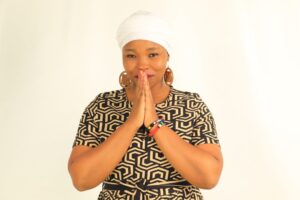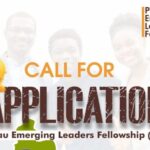For years, Zintle Khobeni believed herself strong enough to resist violence. But in 2015, a gang-rape in her home in Johannesburg shattered her sense of security and sent her world crumbling. At just 24, she was forced to confront the brutal realities of sexual violence and its lasting societal repercussions.
Seeking a fresh start, Zintle moved to Cape Town, only to be betrayed again—this time by her manager, who exploited her vulnerability. The weight of shame and silence, coupled with a justice system designed to fail survivors, left her struggling. When she finally confided in her family, their first reaction was concern for public opinion. “What will people say?” they asked.
For years, she bore the burden of trauma alone. It wasn’t until she pursued legal studies in Cape Town that she began to see her experiences not just as personal tragedies but as crimes demanding accountability. Encouraged by a colleague, she sought therapy—a concept she had once dismissed. But therapy became her turning point, helping her reject misplaced shame and begin healing.
With healing came clarity. Zintle recognised the systemic failures that silenced survivors and allowed abusers to act with impunity. Determined to change that, she founded an organisation dedicated to supporting survivors, providing free paralegal assistance, and fighting for justice.
Founding The Great People of South Africa
In 2019, she officially launched The Great People of South Africa, though it began under a different name, ‘I Think Africa.’ Her initial vision was a continent-wide network of advocacy groups. However, a moment of unexpected inspiration led to a rebranding that resonated deeply, giving birth to The Great People of South Africa, with aspirations to expand beyond borders.
On August 27, 2019, the organisation was officially registered under the South African Department of Social Development. But securing legal status was only the first challenge; sustainability proved to be an ongoing battle. The advocacy work is relentless, and funding remains a significant obstacle. The team constantly innovates to sustain its programs in communities that need them most.
Beyond financial struggles, the organisation faces broader societal resistance. Backlash against women’s rights, LGBTQI rights, disability rights, and sexual and reproductive health rights is growing globally.
Following the 2024 national elections, South Africa saw a concerning decline in women’s political representation, particularly in parliament. The Government of National Unity (GNU) shifted power dynamics, with multiple parties scrambling for representation, further entrenching male leadership.
According to the Electoral Institute for Sustainable Democracy in Africa, women’s representation in parliament declined from 46% in 2020 to 43% in 2024—a regression that underscores the need for continued advocacy.
Critics often accuse The Great People of South Africa of focusing too much on women’s issues. Zintle counters that argument by highlighting the systemic inequalities disproportionately affecting women. Just as discussions of race in South Africa historically centred on the Black majority due to their oppression, gender advocacy prioritizes those facing the greatest disadvantages.
“We do not exclude men; we invite them to be part of the solution. True equality demands collective effort,” she asserts.
Transforming Advocacy into Action
In 2020, amidst the COVID-19 pandemic, the organisation secured its first major funding from Gender Links and Women’s Voice and Leadership South Africa, in collaboration with Global Affairs Canada.
This financial backing helped formalise operations and laid the foundation for a sustainable movement. Additional partnerships with the Solidarity Fund, the Hlanganisa Institute for Development in Southern Africa, the Joint Gender Fund, and the GBVF Response Fund allowed the organisation to expand its reach, particularly in addressing the surge of gender-based violence cases during lockdowns.
Despite these strides, challenges persist, particularly within the justice system. South Africa’s battle against gender-based violence is hindered by police inefficiency, corruption, missing dockets, limited resources, and a staggering backlog of DNA evidence.
Too many cases are dismissed before ever reaching a courtroom, leaving survivors disillusioned and fearful of speaking out. The fight for justice remains relentless.
Stories of Resilience
Despite the hurdles, the organisation has transformed lives. One such story is that of Buhle (a pseudonym), a woman trapped in an abusive marriage for years. Initially unaware that support existed, she discovered the organisation through its community-based paralegal program. Encouraged to participate, she excelled and later joined the team as a fierce advocate for other survivors.
“She’s unstoppable now. You don’t mess with her,” Zintle proudly shares.
Though South Africa boasts progressive legal frameworks such as the Domestic Violence Act and the Sexual Offences Act, the justice system remains deeply flawed. The Great People of South Africa contributed to a public protector’s report exposing these systemic failures, calling for improved collaboration between the Department of Social Development, the South African Police Service, and the Department of Justice.
However, the missing link remains a lack of women in decision-making spaces. Zintle has since expanded her advocacy to focus on increasing women’s political participation, believing that female leadership is essential to enacting and enforcing meaningful change.

Facing Threats as a Human Rights Defender
Zintle’s activism has come at a personal cost. In 2021, political tensions forced her to relocate community meetings after rumors spread that she was a potential political threat. Online abuse and direct threats followed, particularly after she exposed influential perpetrators of gender-based violence.
“People flooded my social media, threatening me. ‘How dare you challenge this person? Who do you think you are?’” she recalls.
Her advocacy also strained her personal life. When she spoke out against a politically connected individual, her partner lost his job due to his affiliation with the accused’s political party. The stress took a toll on their mental health and ultimately led to their separation. As a result, their daughter had to move in with Zintle’s mother, a painful yet necessary decision.
A Vision for the Future
Despite the hardships, Zintle remains unwavering. Her passion for democracy and ethical leadership fuels her determination. She believes in the transformative power of women in governance and dreams of becoming South Africa’s first female president.
Her work continues in marginalized communities like Ndofela, Khayelitsha, Delft, Kraaifontein, Nyanga, Gugulethu, Phillipi, Joe Slovo, and Mitchell’s Plain. However, sustaining programs remains a challenge.
Initially running three sessions a week, financial constraints forced the team to cut back, despite growing demand. Operating under the motto ‘We Are Who We Have Been Waiting For,’ the organization relies on a small yet dedicated team of ten.
As a proud member of the 2025 Women of South Speak Out (WOSSO) fellowship, Zintle believes addressing gender-based violence requires collaboration between government, civil society, and businesses.
She calls for tangible actions beyond bureaucratic discussions and encourages survivors to share their stories, asserting that their voices have the power to drive change.
Zintle Khobeni endured a traumatic gang-rape in 2015, challenging her sense of security and highlighting the broader societal issue of sexual violence. Her subsequent move to Cape Town introduced further betrayal, compelling her to address the systemic failures allowing such offenses to persist. This realization led her to found The Great People of South Africa in 2019, an organization advocating for survivors and providing paralegal assistance. Despite ongoing financial and societal challenges, the organization has made significant impacts, securing partnerships and funding, and advocating for systemic justice reforms.
Zintle emphasizes the systemic inequalities affecting women and champions the need for men to join the solution for true gender equality. Amidst the growing global backlash against women's rights, The Great People of South Africa is committed to increasing women's political representation, a mission spurred by the decline following South Africa's 2024 elections. Detailing her organization’s successes and resilience through partnerships during the COVID-19 pandemic, Zintle remains steadfast in her advocacy, despite personal and political threats, aspiring to strengthen female governance and become South Africa's first female president.
Facing threats and personal sacrifices, Zintle continues to work tirelessly in marginalized communities, underscoring the importance of collaboration between government, civil society, and businesses in tackling gender-based violence. Her efforts persist with the understanding that collective action, including voicing survivor stories, is crucial for driving substantial change in society.






